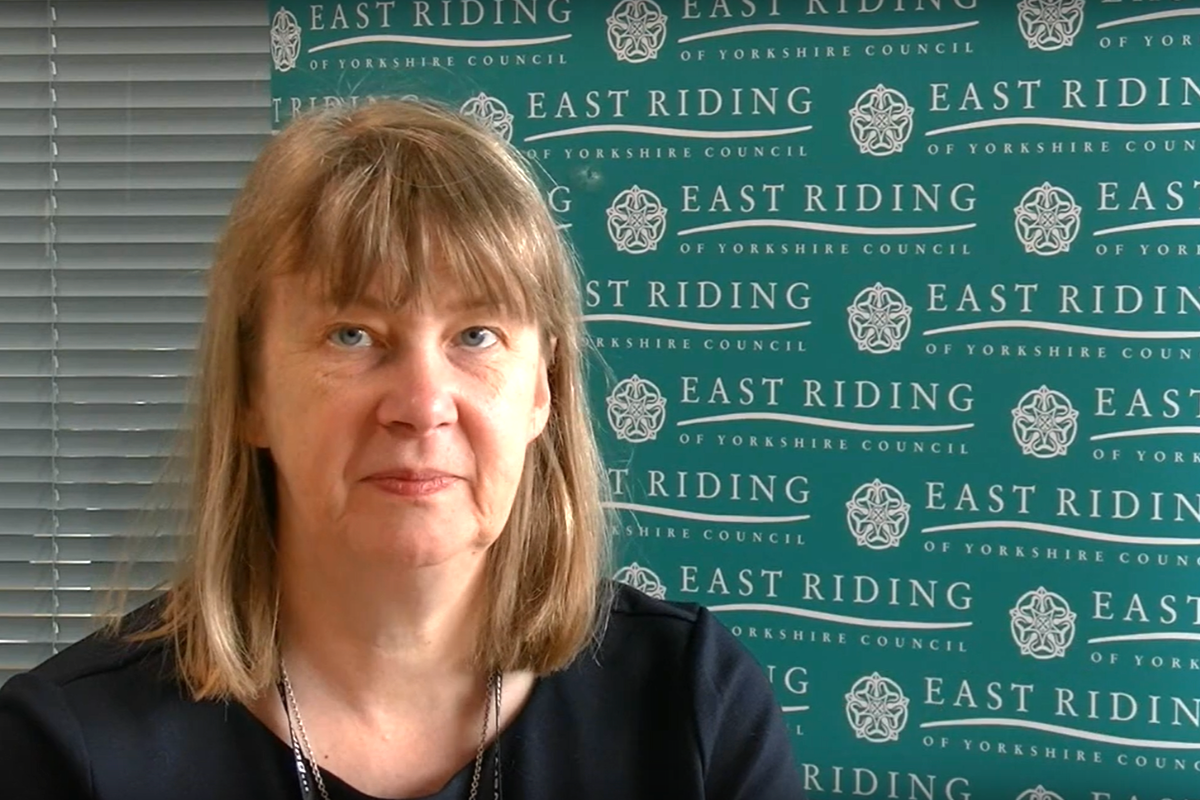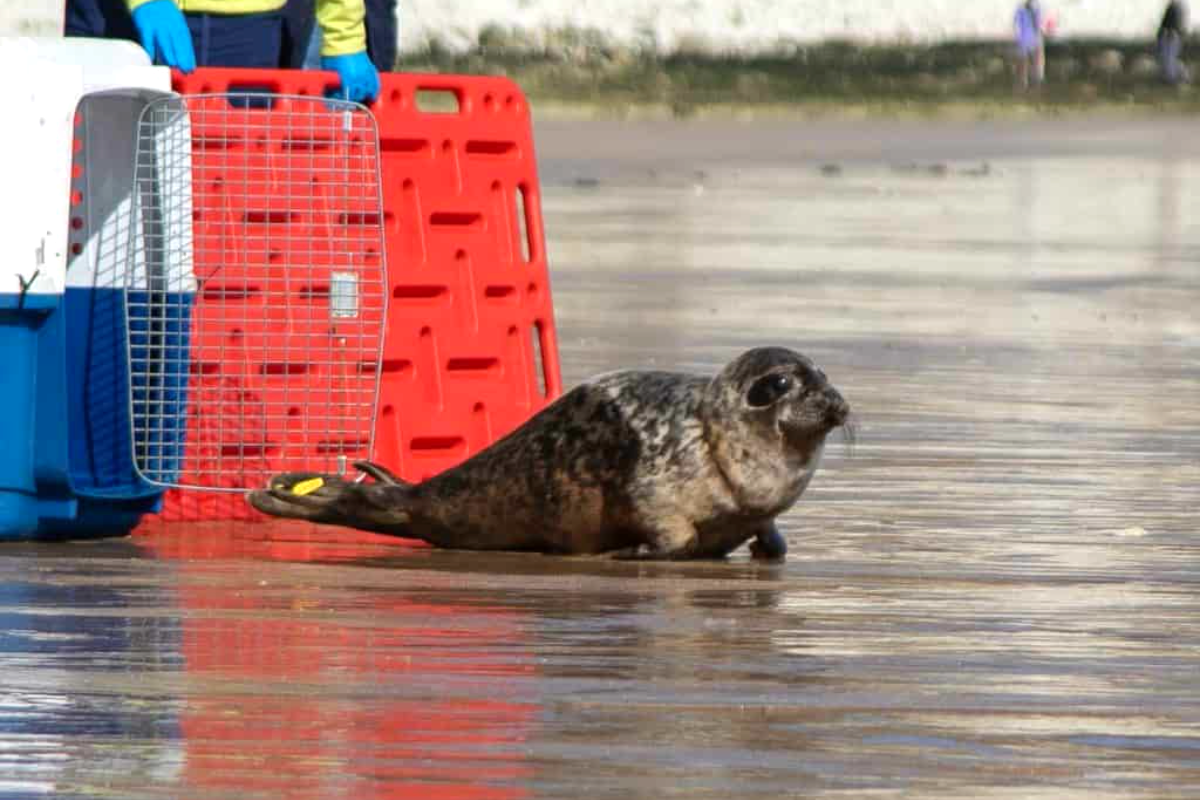
The departure of the chief executive marks a big shake-up at the top of the authority, at a crucial time in its history.
In a brief statement on Monday the East Riding of Yorkshire Council announced that it's Chief Executive, Caroline Lacey has left the authority.
The statement said:
"The Chief Executive, Caroline Lacey has reached agreement to leave the authority.
She would like to thank all partners for their support over many years and wishes everyone the best for the future, in what are challenging times for us all.
The Deputy Chief Executive, Alan Menzies, will assume Chief Executive duties in the short term, so that the running of the council continues seamlessly."
Caroline Lacey, who was appointed to the top job in 2017, has worked with four different political leaders and served during two elections. Her time at the top saw the council attempting to navigate Brexit, the coronavirus pandemic and the ongoing cost of living crisis.
She also faced significant challenges within the authority, including struggles to attract staff, a growing budget black hole and allegations that the authority was being run by its officers, rather than politicians.
The council announced Ms Lacey’s departure yesterday, but it was not as abrupt as the authority’s statement suggested. The authority told the Local Democracy Reporting Service in September that she had gone on leave, with her deputy Alan Menzies taking on her duties.
The council stated at the time:
“The chief executive is currently on leave. In accordance with the council’s constitution, the deputy chief executive is currently acting in her stead, assuming the responsibilities of the office of the chief executive. Business as usual therefore continues. In order to maintain the privacy of our employees, we do not provide comment or information about individuals, in line with our organisational policy.”
Ms Lacey’s tenure saw some notable successes, including turning around an Ofsted rating of the council’s children’s services from “inadequate” in 2020 to “good” in the space of three years. She also oversaw the council’s efforts to steer the area through the coronavirus pandemic, including moving council meetings online and presiding over emergency powers delegated to full-time staff.
In 2021, a £2.25m Total Pay and Reward review was launched, after some posts were left vacant for months after being advertised with pay rates that were below the average for public sector staff. Ms Lacey told councillors last November that some vacancies may never be filled and the authority would have to make do with the staff they had amid a growing budget black hole.
That black hole grew to £9.4m for this financial year and was previously forecast to reach £36m by 2027. Measures including a freeze on recruitment and cutting back on non-essential spending were announced in September, shortly before Ms Lacey went on leave.
In 2022, a draft report following a visit to the council made damning claims about the council’s internal culture. The Local Government Association’s (LGA) Peer Challenge Review claimed that the council was inward-looking, with power concentrated in the hands of long-serving officers. The review called on the authority to become more member-led – i.e. by elected councillors.
It also alleged that bullying behaviour had been witnessed during the visit of the Peer Challenge team. Although references to bullying were removed from the final version of the report, the council’s failure to keep a count of cases admitted by Ms Lacey was branded unacceptable.
The council has since adopted a beefed up Bullying and Harassment Policy and the LGA has said it is happy with the direction of travel on addressing other concerns. But it is understood that the scope of plans for a more member-led authority have proved challenging and have strained relations within the authority, including with Ms Lacey.
The council’s deputy chief executive Alan Menzies will continue to stand in for the chief executive until a replacement can be found. Mr Menzies is also the council’s planning and economic regeneration director and has overseen efforts to establish the Humber Freeport, which is designed to attract investment and create jobs at sites include Goole, east Hull and Immingham.
Mr Menzies will also have to handle ongoing work on the final version of the East Yorkshire devolution deal between the East Riding and Hull, the biggest shake-up of regional authorities since the abolition of Humberside County Council in 1996. It comes as Chancellor Jeremy Hunt is expected to formally unveil the East Yorkshire deal, which includes an elected mayor, tomorrow (Wednesday, November 22).
The council is now set to form an appointments committee which will handle the filling of the vacant chief executive role. The timescale for filling the position has yet to be announced.




 Injured Yorkshire Coast Seal Back in the Water
Injured Yorkshire Coast Seal Back in the Water
 Flamingo Land Welcomes Baby Giraffe
Flamingo Land Welcomes Baby Giraffe
 Scarborough and Whitby MP to Launch Petition for Return of Stroke Services
Scarborough and Whitby MP to Launch Petition for Return of Stroke Services
 UK Mayors Being Urged to Buy Scarborough Buses
UK Mayors Being Urged to Buy Scarborough Buses
 Free Music Events in Scarborough to Raise Funds for Andy's Man Club
Free Music Events in Scarborough to Raise Funds for Andy's Man Club
 Scarborough's Cross Lane Hospital Receives Heartfelt Gift
Scarborough's Cross Lane Hospital Receives Heartfelt Gift
 Saint Catherine’s Becomes First UK Hospice to Launch Masonic Aware Initiative
Saint Catherine’s Becomes First UK Hospice to Launch Masonic Aware Initiative
 Candidates Confirmed for First Scarborough Town Council Elections
Candidates Confirmed for First Scarborough Town Council Elections
 Scarborough Station Set for Multi-Million-Pound Roof Renovation
Scarborough Station Set for Multi-Million-Pound Roof Renovation
 Renewed Appeal Following "Shocking" Arson in Whitby
Renewed Appeal Following "Shocking" Arson in Whitby
 Six Candidates Standing to Become First Elected Mayor of Hull and East Yorkshire
Six Candidates Standing to Become First Elected Mayor of Hull and East Yorkshire
 Construction to Start on Whitby Maritime Hub
Construction to Start on Whitby Maritime Hub








Comments
Add a comment